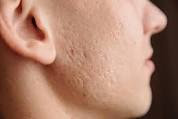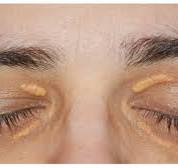Unlocking the Mystery of Oral Fungal Infections: Causes, Symptoms, Treatment, and Prevention
The mouth, with its complex ecosystem of bacteria, fungi, and other microorganisms, is susceptible to a variety of infections, including fungal infections. While oral fungal infections are typically harmless, they can cause discomfort and inconvenience for those affected. In this comprehensive blog, we'll delve into the world of oral fungal infections, exploring their causes, symptoms, treatment options, and strategies for prevention.
**Understanding Oral Fungal Infections:**
Oral fungal infections, also known as oral thrush or oral candidiasis, occur when an overgrowth of the fungus Candida albicans or other Candida species disrupts the normal balance of microorganisms in the mouth. While Candida is a naturally occurring fungus in the oral cavity, factors such as weakened immune function, antibiotic use, or underlying medical conditions can predispose individuals to oral fungal infections.
**Causes of Oral Fungal Infections:**
Several factors can contribute to the development of oral fungal infections, including:
1. **Weakened Immune System:** Individuals with weakened immune systems, such as those with HIV/AIDS, cancer, or diabetes, are at increased risk of developing oral fungal infections.
2. **Antibiotic Use:** Antibiotics can disrupt the balance of microorganisms in the mouth, leading to an overgrowth of Candida fungus.
3. **Poor Oral Hygiene:** Inadequate oral hygiene practices, such as infrequent brushing or flossing, can create an environment conducive to fungal growth.
4. **Dry Mouth:** Conditions that cause dry mouth, such as certain medications, smoking, or dehydration, can increase the risk of oral fungal infections.
5. **Denture Use:** Ill-fitting or improperly cleaned dentures can harbor bacteria and fungi, leading to oral infections.
**Symptoms of Oral Fungal Infections:**
The symptoms of oral fungal infections can vary depending on the severity of the infection and the individual's immune response. Common symptoms include:
- **White Patches:** White, creamy patches or plaques on the tongue, inner cheeks, palate, or throat are characteristic of oral thrush.
- **Redness and Soreness:** The affected areas may appear red, swollen, or inflamed and may be accompanied by discomfort or pain, especially when eating or drinking.
- **Burning Sensation:** Some individuals may experience a burning or itching sensation in the mouth or throat.
- **Difficulty Swallowing:** Severe cases of oral thrush may cause difficulty swallowing or a sensation of a lump in the throat.
**Treatment Options for Oral Fungal Infections:**
Treatment for oral fungal infections typically involves antifungal medications, which may be administered orally, topically, or as a mouthwash. Some common treatment options include:
1. **Antifungal Medications:** Prescription or over-the-counter antifungal medications, such as fluconazole, clotrimazole, or nystatin, can help to eliminate the fungus and relieve symptoms.
2. **Topical Antifungals:** Antifungal creams or ointments may be applied directly to the affected areas of the mouth or throat to reduce fungal growth and inflammation.
3. **Oral Rinses:** Antifungal mouthwashes containing ingredients such as chlorhexidine or nystatin may be prescribed to help clear the infection and prevent recurrence.
4. **Probiotics:** Probiotic supplements or yogurt containing live cultures of beneficial bacteria can help restore the balance of microorganisms in the mouth and prevent fungal overgrowth.
5. **Improving Oral Hygiene:** Practicing good oral hygiene habits, such as brushing and flossing regularly, using a soft-bristled toothbrush, and cleaning dentures properly, can help prevent and manage oral fungal infections.
**Preventive Measures:**
Preventing oral fungal infections involves adopting healthy lifestyle habits and practicing good oral hygiene. Some effective preventive measures include:
1. **Maintain Good Oral Hygiene:** Brush your teeth at least twice a day, floss daily, and rinse with an antiseptic mouthwash to remove plaque and bacteria from the mouth.
2. **Stay Hydrated:** Drink plenty of water throughout the day to help keep the mouth moist and prevent dry mouth, which can increase the risk of fungal infections.
3. **Limit Sugar Intake:** Reduce your consumption of sugary foods and beverages, as sugar can fuel the growth of Candida fungus in the mouth.
4. **Quit Smoking:** Smoking can weaken the immune system and increase the risk of oral fungal infections. If you smoke, consider quitting to improve your overall oral health.
5. **Regular Dental Check-ups:** Schedule regular dental check-ups and cleanings to monitor your oral health and address any issues before they develop into more serious problems.
**Conclusion:**
Oral fungal infections can be uncomfortable and disruptive, but with proper understanding, treatment, and preventive measures, they can be effectively managed. By recognizing the causes, symptoms, treatment options, and preventive strategies for oral fungal infections, you can take proactive steps to protect your oral health and maintain a healthy, thriving smile. If you suspect you may have an oral fungal infection or are experiencing persistent symptoms, don't hesitate to consult with a dental or healthcare professional for evaluation and guidance. Your oral health is essential, and with the right care and attention, you can enjoy a lifetime of healthy, happy smiles.
Call now
on our Mobile 8669086098 to book an appointment
Kindly visit our website Oral Fungal Infection to know more.
#fungalinfection #fungal #infection #oralthrush # oralcandidiasis #redness #soreness #swollingdifficulty



Comments
Post a Comment